Champerty and maintenance are doctrines in common law jurisdictions that aim to preclude frivolous litigation:

Sir Matthew Hale was an influential English barrister, judge and jurist most noted for his treatise Historia Placitorum Coronæ, or The History of the Pleas of the Crown.
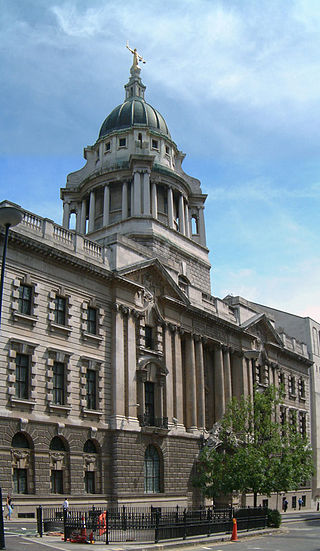
The Central Criminal Court of England and Wales, commonly referred to as the Old Bailey after the street on which it stands, is a criminal court building in central London, one of several that house the Crown Court of England and Wales. The street outside follows the route of the ancient wall around the City of London, which was part of the fortification's bailey, hence the metonymic name.
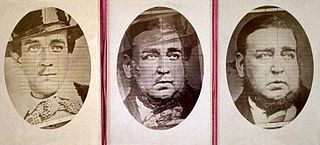
The Tichborne case was a legal cause célèbre that fascinated Victorian Britain in the 1860s and 1870s. It concerned the claims by a man sometimes referred to as Thomas Castro or as Arthur Orton, but usually termed "the Claimant", to be the missing heir to the Tichborne baronetcy. He failed to convince the courts, was convicted of perjury and served a 14-year prison sentence.

Frederic Thesiger, 1st Baron Chelmsford, PC, FRS was a British jurist and Conservative politician. He was twice Lord High Chancellor of Great Britain.

John Duke Coleridge, 1st Baron Coleridge, PC was an English lawyer, judge and Liberal politician. He held the posts, in turn, of Solicitor-General for England, Attorney-General for England, Chief Justice of the Common Pleas and Lord Chief Justice of England.
Sir Cresswell Cresswell, PC, born Cresswell Easterby, was an English lawyer, judge and Tory politician. As a judge in the newly created divorce court, Cresswell did much to start the emergence of modern family law by setting divorce on a secular footing, removed from the traditional domain of canon law.
Charles Rann Kennedy was an English lawyer and classicist, best remembered for his involvement in the Swinfen will case and the issues of contingency fee agreements and legal ethics that it involved.
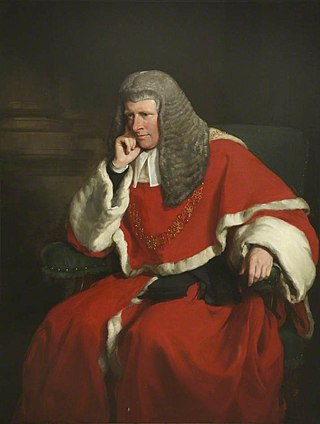
Sir William Erle PC FRS was an English lawyer, judge and Whig politician.

Cockburn is a Scottish surname that originated in the Borders region of the Scottish Lowlands. In the United States most branches of the same family have adopted the simplified spelling 'Coburn'; other branches have altered the name slightly to 'Cogburn'. The French branch of the family uses the spelling 'de Cockborne', with the middle "ck" being pronounced.

Sir Alexander James Edmund Cockburn, 12th Baronet was a British jurist and politician who served as the Lord Chief Justice for 21 years. He heard some of the leading causes célèbres of the nineteenth century.
Stockdale v Hansard (1839) 9 Ad & El 1 is a United Kingdom constitutional law case in which the Parliament of the United Kingdom unsuccessfully challenged the common law of parliamentary privilege, leading to legislative reform.
Talbot v Laroche (unreported) was an 1854 legal action, pivotal to the history of photography, by which William Fox Talbot sought to assert that Martin Laroche's use of the unpatented, collodion process infringed his calotype patent.

Sir William Garrow, was an English barrister, politician and judge known for his indirect reform of the advocacy system, which helped usher in the adversarial court system used in most common law nations today. He introduced the phrase "presumed innocent until proven guilty", insisting that defendants' accusers and their evidence be thoroughly tested in court. Born to a priest and his wife in Monken Hadley, then in Middlesex, Garrow was educated at his father's school in the village before being apprenticed to Thomas Southouse, an attorney in Cheapside, which preceded a pupillage with Mr. Crompton, a special pleader. A dedicated student of the law, Garrow frequently observed cases at the Old Bailey; as a result Crompton recommended that he become a solicitor or barrister. Garrow joined Lincoln's Inn in November 1778, and was called to the Bar on 27 November 1783. He quickly established himself as a criminal defence counsel, and in February 1793 was made a King's Counsel by HM Government to prosecute cases involving treason and felonies.
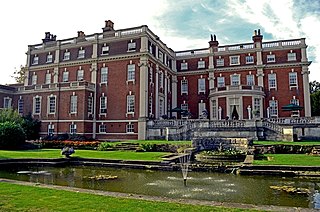
Swinfen Hall is an 18th-century country mansion house, now converted into a hotel, situated at Swinfen, in the Lichfield district of Staffordshire in England. It is a Grade II* listed building.
Edward Pennefather PC, KC was an Irish barrister, Law Officer and judge of the Victorian era, who held office as Lord Chief Justice of Ireland.
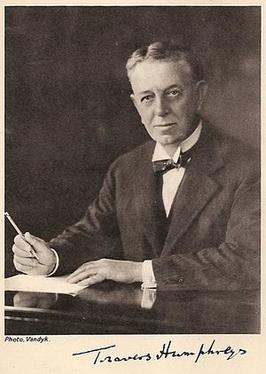
Sir Richard Somers Travers Christmas Humphreys was a noted British barrister who, during a sixty-year legal career, was involved in the cases of Oscar Wilde and the murderers Hawley Harvey Crippen, George Joseph Smith and John George Haigh, the 'Acid Bath Murderer', among many others.
Nicholas Nugent was an Anglo-Irish judge, who was hanged for treason by the government that appointed him. He had, before his downfall, enjoyed a highly successful career, holding office as Solicitor General for Ireland, Baron of the Irish Court of Exchequer, and Chief Justice of the Irish Common Pleas, but he was ruined by the rebellion of his nephew William Nugent, which he was accused of supporting.

Sir Alfred Aspinall Tobin was a British lawyer and judge who served as the Conservative Member of Parliament for Preston between 1910 and 1915.

2 Hare Court is a barristers' chambers specialising in criminal and regulatory law, located in the Inner Temple, one of the four Inns of court. Established in the 1967, It employs 77 barristers, including 23 King's Counsel and several former prosecutors, including those who have acted as First Senior, Senior and Junior Treasury Counsel – barristers appointed by the Attorney General to prosecute the most serious and complex criminal cases to come before the courts.












